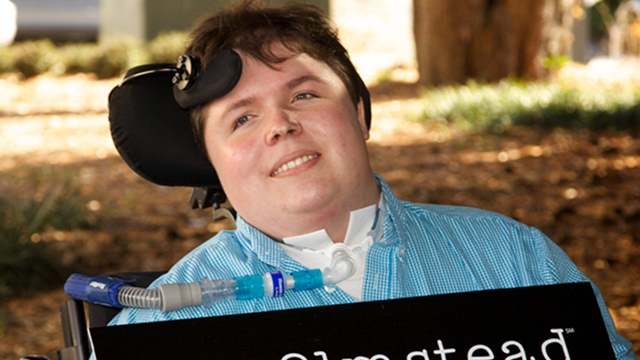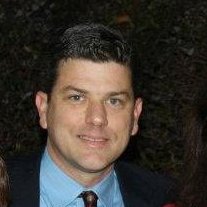This post was first published at Talk Poverty.
For most Americans, turning 21 is an exciting birthday. But for college student Andrew Furey, it was the date set by the state of Georgia to stop the home health services he needed to stay alive. Andrew has muscular dystrophy and uses a ventilator and other complex equipment to breathe. Georgia would provide Andrew these health services in a nursing home but not in his own home. The Atlanta Legal Aid Society appealed this decision and won, so Andrew was able to receive the services he needed at home.
We have seen the push and pull toward inclusion erupt in many forms over the past few weeks. Most recently, the Supreme Court affirmed both a critical tool in the Fair Housing Act and the right to gay marriage. Yet, we also saw abhorrent acts of violence based on race. And yet… we saw an Indian American Governor and two Senators (one white and one black) lead South Carolina in taking down its Confederate Flag. And yet…
In the midst of these skirmishes, people with disabilities celebrate two of the greatest victories for inclusion in our country’s history: Olmstead v. LC (1999) and the Americans with Disabilities Act (1990). These landmark events are related.
Olmstead, an Atlanta Legal Aid Society case, is often called the “Brown v. Board decision” for people with disabilities. The Court explained that its holding “reflects two evident judgments.” First, “institutional placement of persons who can handle and benefit from community settings perpetuates unwarranted assumptions that persons so isolated are incapable of or unworthy of participating in community life.” Second, “confinement in an institution severely diminishes the everyday life activities of individuals, including family relations, social contacts, work options, economic independence, educational advancement, and cultural enrichment.” It ordered the state of Georgia to assist two women with disabilities so they could live in their own homes rather than continuing to confine them to a hospital for people with similar disabilities. Olmstead is slowly transforming our country from a 19th century system of institutions, isolation, and dependence, to a 21st century nation of inclusion, opportunity, and independence. And yet… amidst the celebration, we recognize that thousands with disabilities still languish on waiting lists, in institutions, and without jobs – waiting for the promise of inclusion to materialize.
On July 26, we marked the 25th anniversary of the Americans with Disabilities Act (ADA). While today we take it for granted, the passage of the ADA was an arduous struggle. It is best symbolized by Tom Olin’s photograph of men and women with disabilities leaving their wheelchairs and pushing their way up the steps of the Capitol. In signing the act, President George H.W. Bush declared that the ADA would ensure people with disabilities “the opportunity to blend fully and equally into the rich mosaic of the American mainstream.”
Even though the ADA created legal requirements to enable inclusion and stop discrimination, people with disabilities are often still segregated into institutions and excluded. Civil legal aid providers, including those in the national Protection & Advocacy system, play a critical role in ensuring fair treatment of people with disabilities; but the available resources are insufficient to meet the need. These organizations advocate for accessible and integrated education, employment, housing, and healthcare for people with disabilities of all ages. In many states, men and women with disabilities – many of whom live with aging parents – need the help of legal advocates in order to obtain the supports. Without such help, they may be forced to join others like them who already languish in institutions.
In Georgia, the past five years have shown both the promise of Olmstead and the enormous work that remains. The United States Department of Justice – in collaboration with the Atlanta Legal Aid Society, the Georgia Advocacy Office, the Bazelon Center for Mental Health Law, and other mental health advocates — reached a settlement to close the state’s psychiatric hospitals and provide an array of supports, including housing, to thousands of Georgians with severe and persistent mental illness. The state also promised to transition everyone with developmental disabilities from the state hospitals to the community, and to provide limited services to people with developmental disabilities in the community.
Due to the settlement, Georgia has invested more than $170 million in new dollars into these systems with mixed success. A range of new services are enabling people with mental illness to live meaningful lives in the community. The state is providing 2,300 new state housing vouchers similar to Section 8 and has adopted a housing first policy that ensures permanent stable housing as a first step before services are initiated. On the developmental disability side, the state has realized its infrastructure of services is broken and has placed a moratorium on transitions. The Justice Department and Georgia are negotiating an extension of that part of the settlement.
There is still more to do on Olmstead. The Atlanta Legal Aid Society will continue to advocate for Georgians in nursing homes who want to be in the community and will push the state to address the 7,900 person waiting list for developmental disability services – a list that includes 2,890 people waiting years for services despite the fact that the state has determined that they need services within six months.
This is just Georgia. Olmstead cases are being brought to courts across the country. Civil legal aid attorneys now have new tools to bring these cases with pleadings and a legal outline on the new OlmsteadRights.org website, developed by the Atlanta Legal Aid Society in partnership with theNational Disability Rights Network. The website also shares the history of Olmstead, provides tools for people to advocate for themselves, and tells the stories of men and women whose lives have been transformed by Olmstead.
In the years since Olmstead and the passage of the ADA, we as a country have engaged in the difficult and revolutionary work of real inclusion. We have wrestled with what actions governments, businesses, and each of us must take to accommodate our fellow citizens who use wheelchairs and who have sight and hearing impairments. We have brought students who learn differently into our regular classes. And we have helped people return to their own homes who thought they would die in nursing facilities.
Along the way, we have learned the value of inclusion. Ramps assist people with disabilities, and also aging family members, parents with strollers, and, of course, our rolling suitcases. Assistive technology, smart phones, and computers have made life easier and more efficient for everyone – not just people with disabilities. And our workplaces, classrooms and communities benefit from the participation and contributions of people who formerly would have been unnecessarily locked away in institutions.
In our rapidly diversifying nation, the battle over inclusion will continue in politics, the courtroom, and our local neighborhoods. The nation should continue to look to our extraordinary disability community for how to do inclusion well. And yet… our nation must also recognize how far we have to go.



